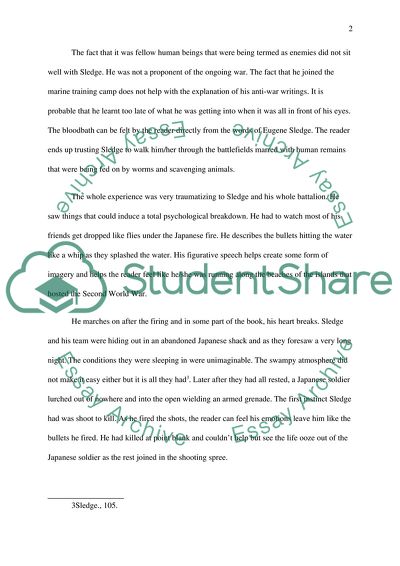Cite this document
(“Book Review - With the Old Breed Report/ Example | Topics and Well Written Essays - 1500 words”, n.d.)
Retrieved from https://studentshare.org/history/1634546-book-review-with-the-old-breed
Retrieved from https://studentshare.org/history/1634546-book-review-with-the-old-breed
(Book Review - With the Old Breed Report/ Example | Topics and Well Written Essays - 1500 Words)
https://studentshare.org/history/1634546-book-review-with-the-old-breed.
https://studentshare.org/history/1634546-book-review-with-the-old-breed.
“Book Review - With the Old Breed Report/ Example | Topics and Well Written Essays - 1500 Words”, n.d. https://studentshare.org/history/1634546-book-review-with-the-old-breed.


